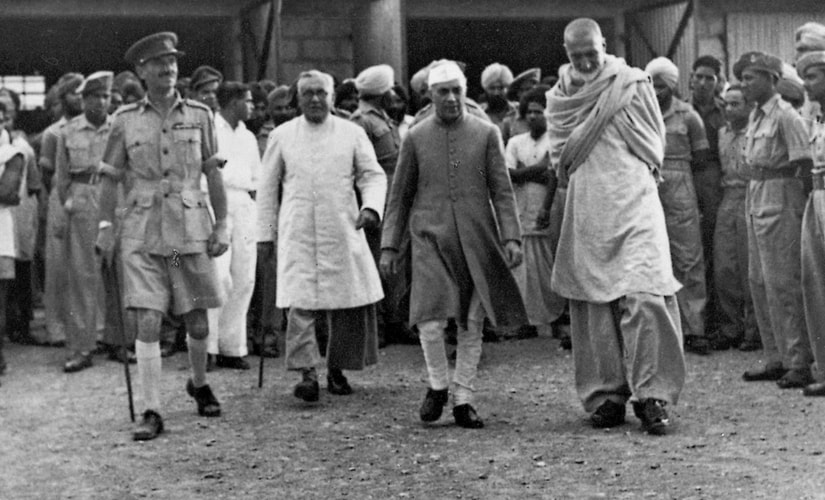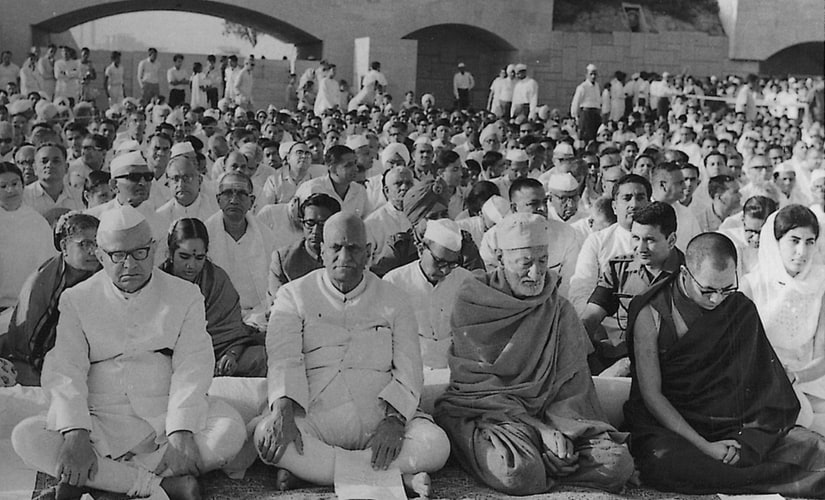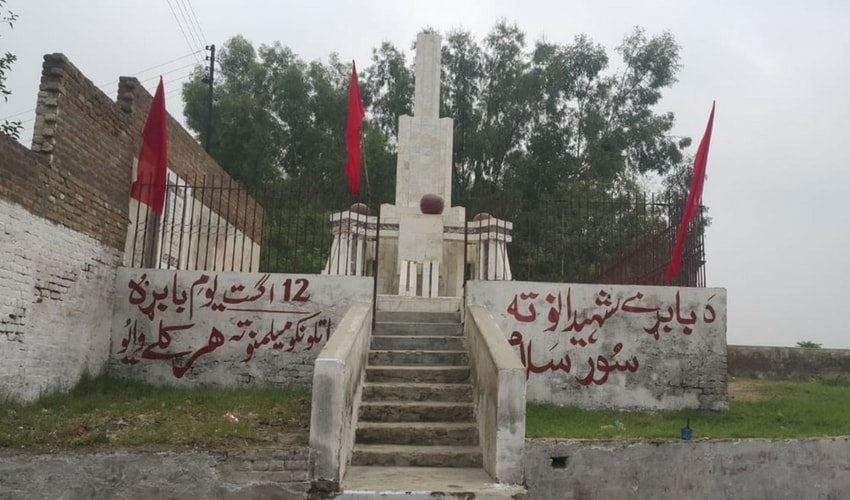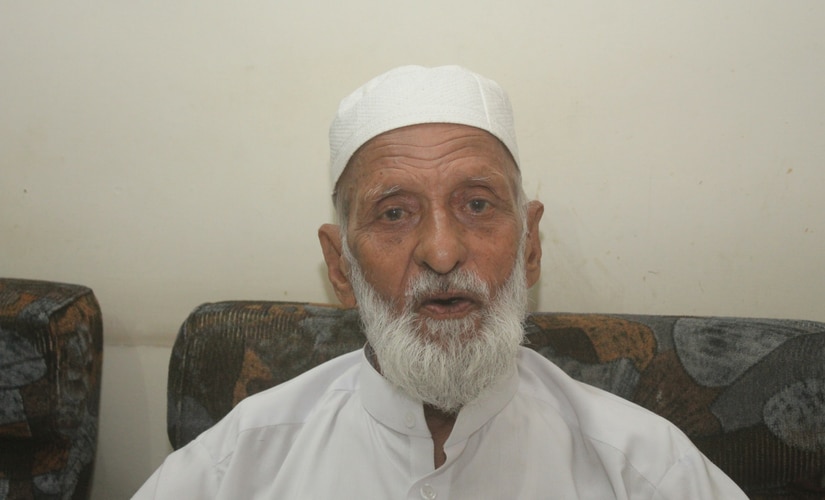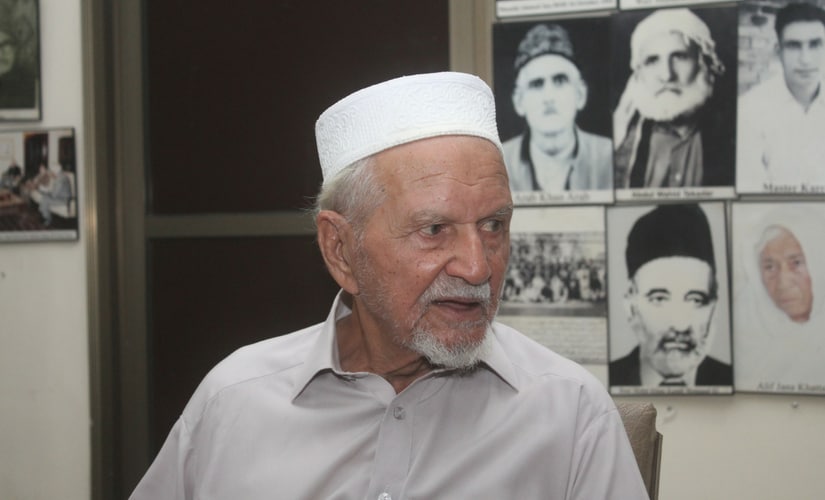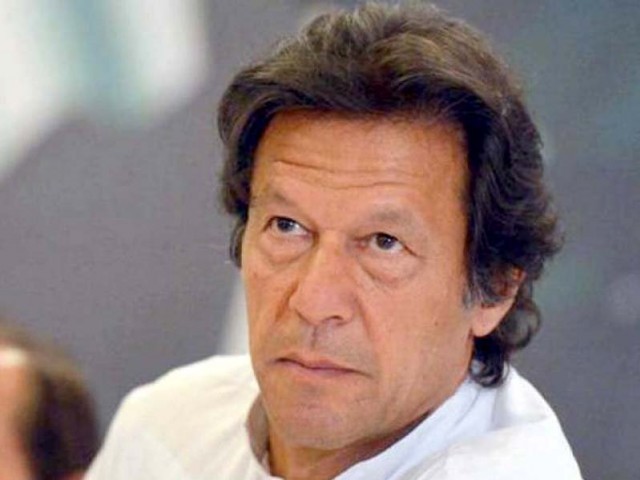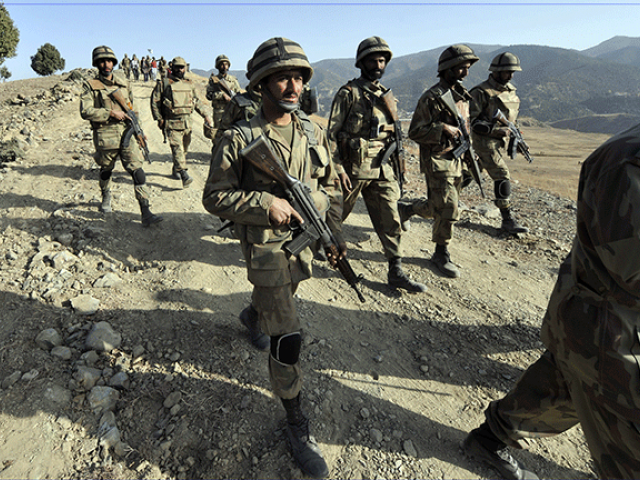When's Pakistan was being made in 1947 , there was no Muslim League Sir jinah or Sir Allama iqbal known in Pashton lands or having any real power in the elected Leadership of Pashtons. Lands , or any power in elected Assemblies over then till 1947 .
Muslim league was non existent here in elected Assemblies but was represented by a few bureaucrats and servants of British like some Sahbizadas , Khan Bhudurs and Arababs etc title holders of British like Sahbizada Abdul Qayum a Qadiani of Topi Swabi or some Mullahs on pay role of British in Jameet ulema hind some Deobandi agents of British.
The only representation Muslim league had was , maybe less than 6 seats in both provinces of Pakhtunkhwa and Baluchistan which was one and same at that time. As name Baluchistan name did not come till 1971 when new constitution of Pakistan was made by Zulfiqar Ali Bhutto ......
Out of hundreds of elected Pashtons in Pakhtunkhwa Assembly and Baluchistan Assmbly called state of Kalat at that time in 1947 which ,was Nationalist and reformist party of Awami national Party of Bacha Khan, Khan Abdul Ghafar Khan is forgotten and not mentioned in text books of Pakistan but history is not taught in Pakistan but a fed lies in as Pakistan Studies ..
Muslim league that were never Voted by Pashtons and balauchis in 1947 , in fact the elected Asemblies of Baluchistan was bombed with Artillery by Pakistan Army and Air force in 1947 -48 , Air force was used to destroy the session of parliament ,when we are gifting Kashmir our human rights were being trampled.
The Pakhtunkhwa elected Asembly was discharged with out any reason in dictatorial manner by Sir jinnah in 1947 being a non elected head of newly formed Pakistan in partner ship with British was discharging and sending home elected leaders of Pashtons in Pakhtunkhwa and Baluchistan . FATA people were directly under bureaucrats as slaves in 1947 till today .
As it was British who put all the Congress people in jail and jinnah and Muslim leaguers never went to jail and was allotted British titles as a loyalist and kept as loyal servants to British .
We Pashtons joined Pakistan because of our own will and for love of Islam as we did not wanted India which was far away and not geographically joined with us with Pakistan in.between .
Afghanistan was not even offered as a choice , by the British conducting referendum we did not love or like sir jinnah or sir iqbal wearing British dresses and looked more of a Kala sahib replacing a white Gora sahib a British agent than a leader who was working for Islam .
But we were already a free Nation at times of partition in 1947 but we did a grave mistake in that referendum by believing in Punjabis and their leaders and we are still paying for our mistake every day every hour to this day .
We should have not belived in Religion but should have gone for Pashton Nationalism and we did a foolish mistake that reminds us every day that why we are prejudiced and hated because of that mistake in believing in Islam .
75 years have passed but we are never Accepted as Real Pakistani by Punjabis . We face bias and Racism and inequality as We don't have a fair constitution of Pakistan over us for more than half of our Pashton population and Pashton areas .
We are treated by a special Draconian and degrading and insulting laws call FCR frontier crimes regulation a set of 40 laws made by Lord curzon viceroy of Britain in 1800 ,a , these same laws at applied by Kala sahib Punjabis to this day on Pashtons
We gave 100 percent Kashmir as a gift to Pakistan in 1947 and kept All of Kashmir for Pakistan up to 1949 for Pakistan and Indian a
Army was shamed and defeated by us ,
But the Punjabis shamelessly , later gave 60 % of Kahmir was given back to India by Punjabi leader Mr Laiqat Ali to India without a single shot being fired as a gift in 1949 what we call Indian occupied Kashmir now or IOK and that gift is with India to this day.
The shame continues , even today the Pakistan Army cannot take IOK , back to Pakistan from India , with its atomic power , and being 4th largest and strongest Army in the world , it has lost all the wars it fought over Kashmir in 1965, 71, Kargil and also war on terror it cannot be victorious but a looser Army vet it celebrates all it as victories as defence day when it lost all th wars and it would never celebrates the 1947 war which we won and got Kashmir for Pakistan .
it supports terrorists like Punjabi Taliban Lashkar toiba or jhangavi , over Kashmir and Afghanistan but they are killers and terrorists loosers who cannot do thier job as We did for Pakistan as Pashtons
All Pashtons , who did not all go to war in Afghanistan and Kashmir if we all go together the world will be at our feet as promised by God as Bani Israel when we were evicted from Israel by orders of God . But he promised any land we out our feet on and it stands true to this as it will of God .
We saved Pakistan from USSR , and we fought alongside , Arab Jihadists and Islamist who were brought on our lands as guests by the same Punjabis who did not offer Punjab to there foreign guests and was out of bound for Arabs and Afghans. So much for Pan Islamism bull shit ...
Punjabis asked us to forget ourselves and become Muslims or Bedoos Nation and promoted Pan Arabian Islamism philosophy cunningly which does not exist as we are not even considered as brother by the same gulf countries and Arabs counties and concept of Islamic brother hood lies only in books not in reality and in world today.
Pashton are only fools who believe in Pan Islamism bull shit even the Punjabis don't believe in it when it comes to Pashtons and Balauchis ..as Punjabis running the country we are never Muslims in Pakistan when treated by Punjabis.
We did fight for Pakistan as after Afghanistan it was Pakistan they wanted and our lands of Pashtons were there , then Arab countries and it's oil and warm waters oil fields was the ultimate target. We saved the Pakistan Arabs and the Punjabis brothers and sisters with our blood and usa too from Soviets and communsim.
Pashtons destroyed Soviet union and we liberated the Europe from Iron curtain fell because of us as the Berlin Wall and it became one United Europeans union because of us and it was no more Soviets and communists in the world because of us Pashtons .
Punjabis was saved from Soviets and Europe liberated was made one and United with more than 3 dozen counties made as one United Europe , the Berlin wall fell and people were United in Europe with lost families and relatives . Americans were saved from global super power Soviet union with its Atomic weapons .
Arabs progressed peacefully and they made tall buildings envy of the world with our the Russians , and great progress was made in GCC in Dubai Saudia, as we saved them and what we got ? Nothing but disability deaths and poverty and we were left tp collect the garbage for Punjabis with donkey carts and drivers of transport and security guards and boot polisher cobblers of Punjabis and Arabs in Gulf countries.
The American and the world celebrated and Arabs who paid dollars for dollar with Americans , became victors Liberators and heroes with Americans as their partners celebrating and they were never called terrorists or called bad names neither was the Punjabis .. Punjabis were called brothers Allies of USA and partners in NATO ...
.. Only The Punjabis and it's ISI declared themselves as victors and only Heroes victorious over Sovietes getting all the glory from us and forgetting us Pashtons in celebrations .
We Pashtons were left in poverty neglect by all of them including Pakistani Punjabis , who started fearing us and despising and hating us as a Dog and called us Terrorists and criminals.
We were hated by Punjabis , Arabs and American and Europeans for whom we sacrificed so much even we are not involved in 9/11 or any European terrorism .
We would loose our Homes ,families brothers and sisters our lands , our business and our honour for being a patriotic Pakistani .
It's is said Give a Dog a Bad Name and Kill it and we were , exactly treated like that , worse then dogs from 1947 to now , no mention exists in Paki media or history of our Kashmir victories and 1947 -49 was and it's liberation in Pakistan ,
No mentions of history of Pakistan Studies of our defeat of Soviet union and fall of communism or the liberation of Europe because of Pashtons
Or our sacrifices then and now on fake war on terror , which is nothing but war on Pakhtons , we are bad Dogs and that has to be killed , hated and despised .
We become IDPs on our lands and we have become the largest on Earth or universe displaced Pashtons as IDP and out of their homes....
and yet when Pakistan budget is passed we are given not a single extra Rupee by Punjabis as measure as token of sympathy or empathy or appreciation ,.recently in latest government of PTI , that is a party made by Punjabis for the punjabi establishment under Punjabi domiciled imme Taliban Khan ,
half of Budget of Pakhtunkhwa was lapsed in amount of 100 Billion rupees out of 200 billion that was given back to Punjabis as a gift by Punjabi imme Taliban Khan Sahib back to federation run by Punjabis and it's establishment as a policy .
PTI criminals Punjabi establishment backed right wing parties , to cover that 100 Billion deficit , PTI took loans that have to be paid back with huge interest from IMF and world bank's , resulting in more taxes and poverty on just Pashtons but not on Punjabis ,
burdening a province that is active in war , and destruction , being destroyed every day and blown up , this is what you get as token of appreciation.
There is no money for us but a lot of money for Army Basses on our lands snatched from Pashtons , who were not ready to sell and who resisted were either made Disappeared missing Persons or declared terrorists and killed in fake police encounters
Pakistani media controlled by Punjabi establishment looked the other way conveniently as it serves as the prostitute to the establishment as people say , it cares shit about humanity or human rights or even citizens of Pakistan as We are sometimes called by mistake .
Most of terrorists even if there are actually are Pashtons who are one as Gul Khans , who follow the Punjabi mullahs like that of Raiwind , Mansoora and Wafiq ul madarissahs all run by Punjabi mullahs of Takht I Lahore as we call the Punjabis establishment , and Loyal puri faislabadis ,
Terrorists Punjabi establishment lashkars toiba lahoris or jhangavi loyal puris faisalabadi Punjabis , are all translations of Pakistan Army as Lashkar toiba in Arabic is translated as Pakistan Army ,
Pashtons are all misled by Punjabis mullahs with connections with Punjabis establishment , led by them to kill our own blood and Pashtons in Af-pak area of Pakhtunkhwa , fata and Baluchistan on this side of durrand line and over other side of durrand line we kill in Pashton dominated area Afghanis for the love of Pakistan and punjabi who treat us like dogs and shit .
Half of our nation has its ID cards and Pakistani nationality blocked and we are not even considered Pakistani , and other half has had no rights since 1947 , as there is no constitution on half of our people in 7 FATA and PATA divisions / Agencies ( total 14) and another 6 FR areas / Districts are not even counted as citizens of Pakistan and under Article 247 , we are not entitled to Pakistani constitution at all , neither any of its human or basic rights of objective resolution allows to that half of our population at all .
Yet we are supposed to call ourselves as Pakistani and have to prove our loyality and face the bias and racism and hate of punjabi establishment ,
Same terrorists are supported by the Punjabis establishment and they have become rich riding in 20 million Land cruisers each and all of them and we real citizen of Pakistan are Facing the brunt of Racism and bias and hate , loosing our Homes and lands and our families and everything we have for what ?? For nothing
Punjabi establishment has decided that they will use the brutal methods against us Pashtons they want to make a another division between Pakhtons and Afghanistan like Wahga in Torkham where they Punjabis army men would show the under wears to Afghanis , when they raise their feet to sky ...........as they show to Indians at Wahaga each day at Sunset by Marching and raising their feet to the sky in a comical ceremony that has become a media spectacle .
The syllabus of Punjabis in schools is full of Hate of Pashtons. And we are traitors in books taught to children in Punjab . And they are not just books but official Text books ..
Have after 75 years Will never go away and will remains and no efforts is under way to rectify it even when we saved the Punjabis in 1965 , 71 , Kargil and in words of a Khan who gave Atomic power to Pakistan Abdul Qadir khan , "" I am not treated like equal Pakistani like the punjabis """, he was disgraced by the Punjabis establishment recently for sacrificing his life for, making us strong after humiliating defeat in 1971 war and making Pakistan Atomic power.
He said in one of his Article , that Punjabis are thinking of Enslaving Afghanistan and Pashtons as Fifth Province and dreaming about it and forgetting Alexander , Changez Khan , Romans , British , Rusians and now the Americans who lost in.Humiliation to Pashtons , Punjabis and it's establishment may be next on the list soon as things are going .
Here is a letter of Punjabis to Pashtons , in all its sincerity , hats off to him or her who did not publish name .
Dear Pashtuns,
I am a Punjabi who has been living in the capital of Punjab for almost four years. I am studying both politics and sociology simultaneously at the University of Punjab, Lahore. I know very little about your culture and political beliefs but, for sure, I know more than any ordinary Punjabi . I am sharing my educational background and familiarity with your culture and politics to demonstrate one very important thing which I am intending to discuss in this piece: politics and social philosophy of life.
We know your loyalty is beyond any doubt, your dedication, passion, and commitment with your assigned goals do not need any certification. And your sense of self-esteem is probably the thing the whole Pakistan is proud of.
You did a lot for Pakistan, for Afghanistan, for Saudi Arabia, for America and for the whole world. But in return you got blood, pain and a bad-name. Hold on… this is not what God has done with you. This is what humans, your so-called brothers, did with you.
There was a time when Quaid-e-Azam Muhammad Ali Jinnah, the father of the nation, trusted you and gave you both respect and responsibility. And what you returned us was probably something our strongest army wouldn't be able to give us. I, like the father of the nation, feel proud of you.
But since 1980s you were used, misused, exploited, maimed, beheaded, murdered and ultimately declared as the biggest terrorists of the world. All this happened when you were fighting a ‘holy war’ for the capitalist America to defeat the atheistic Soviet Union under the leadership of Zia and his Saudi brothers. Americans gave dollars, Saudis surfaced ideological grounds, and Zia being a strategist devised murderous strategies to fight this war. As a result, the Soviets were white-washed, America came out as the sole superpower of the world, Zia went away to meet his awaiting- seventy two virgins and Saudis joined Americans to celebrate their victory.
You remember you were ‘jihadists’. You were ‘ghazis’. You were brothers of Zia. But you were so as long as there was war. At the end of the war you were zombies, terrorists, and the biggest enemies of peace of the world.
This is a sad story. This is a bitter past which dominates the bloody present. This is what your brothers did with you.
The important question remains: who got what from this war? Both Pakistan and Afghanistan are paying the heaviest price of their bravery and love for their brothers and friends. A harsh reality of the day!
This is what happened in history. I can’t change it. Nor can you or anyone else. We have to accept it.
Let’s talk about other things. Why do we, Punjabis, not regard you as trustworthy friends? There is a reason behind this mistrust and awkwardness. I still remember when I was a child I used to go out almost all the time. My mother used to assert: ‘Do not go out. There are Pathans in town and they will take you with them.’ And believe me I used to be very scared of you whenever I heard about your presence.
Then I came to Lahore and here what I initially learnt was so scary: “Pathans are dirty. They love ‘naswar’, smoke, and eat tasteless food and follow stupid things. Girls don’t like them. Most of them are gay, so try to avoid them as much as you can.” This is what I learnt from my friends, their friends and from lay public.
Unfortunately, when I formally joined my university I had a very bad image of the Pathan in my mind. I remember in my first ever class at the campus when I saw that there were some Pathans in my class I was just thinking so many bad things about them: abductors, heartless, homosexuals…
With all this I started reading with them and reluctantly interacted with them. I started finding things contrary to what I had learnt. They were more loving than Punjabis, more loyal than anyone else in my social circle, more intelligent, more outspoken and more concerned about Pakistan than us. This is what I learnt about Pashtuns in my own classroom and through my extensive interaction with them.
Moreover, I read about you. I was interested to learn about your culture including marriage system, badal (the concept of revenge) and everything about Pakhtunwali. I found you people with a strong sense of identity in a Pakistan where everyone else is struggling with his/herself because of identity crisis.
I was lucky to get a chance to stay at Peshawar University when I was selected as a participant of Third International Summer School. I ate your traditional foods and took the same tea. I love Afghani Pulao and want to visit again my friends, Sajid and Abid in Peshawar.
The bottom line is, dear Pashtun friends, you have been stereotyped in a very bad manner in Pakistan. Who did it? I really don’t know. But I know it has been done so smartly that there must always be a dividing line in Pakistan between “us” and “them”.
Image Courtesy: Pakistan Today
The sadder part is that now terrorists are being profiled on racial basis and so many Punjabis believe Pashtuns are bad people; violent extremists. Our police is issuing notices and warning us to report if we see any Pathan selling tea in their traditional outlook. I am sad to read this notice. All this made me teary-eyed.
I wrote this letter to convey my love, not any sympathy, because I know you people neither need nor like it. I am a Punjabi who believes you people are misrepresented, misread and misused. I am a Punjabi who urges you to come here and interact with common Punjabis and let them know what they believe is absolutely incorrect. Come here and teach these people how to love, what it means to be sincere, what it means to be Pakistani and most of all tell them what it means to be Pashtun .
God bless you!
Published in the Nation newspapers , on 27 Feb 2018. By a Punjabi who did not care to mention his or her name - https://nation.com.pk/27-Feb-2017/how-i-a-punjabi-was-brainwashed-with-anti-pashtun-bigotry-and-how-i-unlearnt-it
